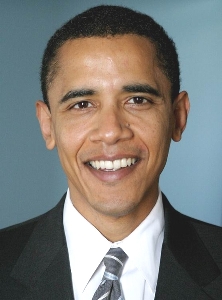As we wave goodbye to 2008, it's worth taking a moment to look back at the biggest drug policy stories of the year. It's a definite mixed bag, but better than most recent years. Following this story is another that looks forward into 2009 -- also likely to be a mixed bag, but with more signs of life to bring hope to drug reformers.
Will 2009 be a happy New Year for positive drug policy changes? Here, we take a look at what could -- or couldn't -- be coming down the pike, as well as some festering issues that aren't going to go away.
New year, same old same old. Another jailer gone bad, another deputy with problems, and a murky tale from Tennessee involving cops, docs, guns, and pills.
Marijuana is decriminalized in Massachusetts effective today. Hash, too.
Don Christen has jousted with Maine authorities over marijuana for years. Now, he's just won a major victory in court.
West Virginia's Kanawha County school board wanted to subject teachers to random, suspicionless drug testing, but a little thing called the US Constitution got in the way.
It's been a little more than six months since social pot dealer Rachel Hoffman was intimidated into becoming a snitch and sent off to buy cocaine and guns from men who killed her. Now, her family is suing the Tallahassee Police Department and seeking legislation to protect other young victims of predatory policing.
Under existing jurisprudence and guidelines, people in Holland can grow up to five marijuana plants without fear of prosecution. Now, a court has ruled that no matter how big the harvest, if you grow five or less, you're safe.
The Peruvian government managed to defeat the bloody Shining Path insurgency in the early 1990s. Now, the profits from prohibition are helping to bring it back to life.
The herbal drug "Spice" is becoming popular with recreational users seeking a high, but authorities in various countries are moving to ban it, claiming it contains a dangerous synthetic cannabinoid.
"Another Botched Drug Raid: Officers Shot, Mistaken for Burglars, No Drugs Found," "Fixing Our Criminal Justice System Isn't Political Suicide. Stop Saying That.," "Arizona's Attorney General Talks Marijuana Legalization," "An Easy Way to Ask Obama About Drug Policy Reform," "Merry(juana) Christmas! (Colbert/Willie Nelson video)," "Bush Endorses Harm Reduction Group... Sort Of," "Harm Reduction and Allan's Diplomatic Faux Pas, on the Final Day of the UN Drug Treatment Conference, Vienna."
Apply for an internship at DRCNet for this spring (or summer), and you could spend the semester fighting the good fight!
With 2008 now rapidly receding in the rear-view mirror, it's time to reflect on the year that was in drug policy. Drug War Chronicle published around 500 separate articles on all aspects of drug policy in 2008 -- national and international, state and local -- and while it's difficult to winnow it all down, below are the stories, processes, and themes we think make up the 10 most important drug reform stories of the year (in no particular order):
Massachusetts Voters Overwhelmingly Pass Marijuana Decriminalization
Marijuana legalization still appears a distant chimera, but three decades after the initial spurt of states decriminalizing marijuana, we may be seeing the beginnings of a new round of successful decriminalization moves. Nevada decriminalized, or defelonized, in 2001, becoming the first state to do so since the 1970s, and in November, Massachusetts approved a decrim initiative with 65% of the popular vote. It goes into effect today, making the Bay State the 12th state to make the possession of small amounts of pot an infraction, not a crime.
New Hampshire could have become the next decrim state last year after a decrim bill surprisingly passed in the House, but it was later killed in the Senate. Suburban Chicago Heights, Illinois, however, adopted decrim in December, and local initiatives making adult marijuana possession offenses the lowest law enforcement priority -- which would result in de facto decrim if law enforcement actually obeyed them -- passed in Hawaii County, Hawaii, and Fayetteville, Arkansas, adding them to a list that now includes Ann Arbor, Denver, Seattle, a half-dozen California communities, and Eureka Springs, Arkansas.

signs of life in Congress
Medical marijuana continues its long march across the states. The biggest victory this year came in Michigan, where voters approved a medical marijuana initiative with 63% of the vote, making Michigan the 13th medical marijuana state and the first in the Midwest. That will undoubtedly help ongoing legislative efforts in states like Kansas, Illinois, Minnesota, and Ohio. In Minnesota, a bill that had passed the Senate in 2007 stalled in the House in the face of veto threats, while in New York, the Assembly passed a medical marijuana bill only to have it see no action in the Senate. Kansas saw its first legislative hearing ever on a medical marijuana bill, although that bill died a few weeks later. Last month, a New Jersey medical marijuana bill won a Senate committee vote and is still alive.
NORA Goes Down to Defeat in California
If marijuana fared well in the November elections, the same thing can't be said for a massive sentencing reform initiative in California. The Non-Violent Offenders Rehabilitation Act (NORA) would have broadened and deepened the Proposition 36 sentencing reforms passed in 2001, but, faced with powerful and deep-pocketed opponents, including drug czar John Walters, the California prison guards' union, and drug court professionals, NORA went down in defeat with only 39% of the vote.
There was more bad news, too: While rejecting NORA, voters approved the Crime Victims Bill of Rights Act, which blocks local authorities from granting early release to prisoners to alleviate overcrowding and mandates that the cash-strapped state -- officials say they will begin issuing IOUs instead of cash payments as soon as March -- fully fund corrections to ensure no prisoners are released early. At least, voters rejected an even more onerous initiative, the Safe Neighborhoods Act, which, while aimed mainly at gang members, violent criminals, and criminal aliens, would also have increased sentences for meth offenses and provided for the expulsion from public housing of anyone convicted of a drug offense. It looks like "tough on crime" still trumps "smart on crime" in the Golden State.
Signs of Life in Congress
After six years of Republican domination of both the executive and legislative branches in Washington, Democrats took back control of the Congress in the November 2006 elections, and by 2008, some small stirrings on drug reform were becoming evident. Not that we expect to see congressional Democrats end the drug war, but every little bit helps.
In February, efforts to finally begin to undo the crack-powder cocaine sentencing disparity got a boost when a House committee held hearings on it. The next month, the Senate passed the Second Chance Act, which had already been passed by the House and which will provide assistance to prisoners reentering society. President Bush signed that bill in April. Even the Republicans seem to have come around a little bit. Several of them supported bills that would address the crack-powder cocaine sentencing disparity, and Republican votes helped get the Second Chance Act over the top.
One bill that Bush would never sign -- it is unclear whether Obama would -- is Rep. Barney Frank's (D-MA) federal marijuana decriminalization bill, the first such bill introduced in decades. Don't hold your breath on this one, but even getting a bill filed in Congress represents progress. In another sign of changing times, in August, Rep. Jose Serrano (D-NY) and 25 cosponsors introduced a bill to end the federal ban on needle exchange funding. A similar bill by Serrano lifted Congress's ban on the District of Columbia government spending its own resources on needle exchange.
Sen. Jim Webb (D-VA) also played an increasingly prominent role in pushing for sentencing and drug policy reform. Using the Joint Economic Committee as his pulpit, he held a 2007 hearing on sentencing and followed that up with a June hearing on the economic and social costs of current drug policies. We sure didn't see anything like that during the years the GOP controlled the Congress.
Not that it's all good on the Hill. Congressional Democrats continued to play the politics of tough on crime and drugs, especially around the issue of funding federal grants to support those multi-jurisdictional anti-drug law enforcement task forces. But from a drug policy perspective, 2008 was a much better year on the Hill than any in this decade. As for 2009, well, that's another article.
Salvia Divinorum and the Prohibitionist Impulse
Efforts to ban the hallucinogenic Mexican plant salvia divinorum picked up pace in 2008, a perfect expression of the reflex prohibitionist response to any new substance. Although the plant has been used by Masatec shamans for centuries, it is new on the recreational drug scene, and that's enough for cops and legislators to want to shut it town, even though the DEA, which has studied it for years, has not moved to do so. Given the scant -- at best -- evidence of any harm done by using it, the only justification for banning it is the idea that somebody somewhere is getting high and must be stopped.
In 2008, California made Salvia sales to minors a misdemeanor (effective yesterday, 1/1/09), while Florida, Illinois, Kansas, Mississippi, and Virginia all banned it or its active ingredient, Salvinorin A. At this writing, a similar bill is on the desk of Ohio Gov. Ted Strickland. Other states where salvia ban efforts were underway in 2008 include Nebraska, South Carolina, Alabama, Massachusetts, and Texas.
The six states that banned it in (or whose previously passed bans went into effect in) 2008 joined Delaware, Louisiana, Maine, Missouri, North Dakota, Oklahoma, and Tennessee, which had all banned it since 2005. 2008 also won the dubious distinction of being the year of the first known arrests in the US for salvia charges. In North Dakota, Kenneth Rau was arrested after ordering $40 worth of salvia leaves on eBay and faced years in prison. It's not known what happened in his case. And in Nebraska, Lincoln shop owner Christian Firoz was arrested for selling salvia even though the plant is not illegal there. He was creatively charged under a law banning the sale of substances for the purpose of intoxication. His trial is pending.

Salvia Divinorum Google ads continued to run on South Dakota news sites after Rau was busted.
Britain had taken a bold step forward when, heeding the recommendations of numerous advisory panels, it downgraded marijuana from a Class B to a Class C drug in 2004. But in May, desperate to burnish its tough on drugs and crime credentials, a flailing Labor government announced it was returning marijuana to Class B. Labor was aided and abetted in turning public opinion against marijuana by a Reefer Madness-style tabloid campaign that would have made William Randolph Hearst blush. For weeks on end, credulous tabloid readers were treated to headlines along the lines of "Son twisted by skunk knifed father 23 times," "How cannabis made me a monster," "Escaped prisoner killed man while high on skunk cannabis," "Boys on skunk butchered a grandmother," and "Teen who butchered two friends was addicted to skunk cannabis" -- and that's just from one newspaper, the Daily Mail.
Since then, the Reefer Madness campaign has subsided somewhat, only to be replaced by a steady diet of "cannabis factory" bust stories, with grow ops being busted on a daily basis and their operators too often hustled off to gaol. The steady drumbeat of sensational press stories may help explain declining support for drug reform in recent polls. In any case, marijuana goes back to being a more serious offense at the end of this month, and Britain marches resolutely backward into the last century.
America Wages Ineffective War Against Poppies and Islamists in Afghanistan
2008 was the bloodiest year yet for American and NATO forces in Afghanistan, where 155 American troops and 138 NATO troops were killed, along with uncounted thousands of Afghan rebels and civilians. While the country saw a slight reduction in opium cultivation and production, Afghanistan still produces more than 90% of the global opium supply, and that fact leaves the West with a terrible paradox: Try to eliminate the drug trade and face driving Afghan peasants into the waiting arms of the Taliban, or ignore the drug trade and let the Taliban profit to the tune of $100 million a year or more. That buys a lot of shiny new weapons to shoot at foreign troops and their Afghan government allies.
NATO and the US military want nothing to do with pissing off poppy-planting peasants, much to the dismay of the State Department and the drug warriors, but in October reluctantly agreed to enlist in the war on poppies by targeting drug traffickers associated with the Taliban -- but not those associated with the government in Kabul. Afghanistan is possibly the most serious foreign policy crisis facing the United States, the situation is deteriorating, and the drug war and drug prohibition were right in the middle of it.
America Gets High, Mexico Bleeds
Mexican President Felipe Calderón took office in December 2006 and immediately sent in the army to battle that country's so-called cartels. It hasn't gone well: Since then, more than 7,000 people have been killed in prohibition-related violence, with 2008's toll alone climbing above 5,000 as the multi-sided violence escalated. The Chronicle was there -- in person -- reporting on the military takeover of Reynosa in February, covering a conference on alternatives to the drug war in Sinaloa Cartel hometown Culiacán in May, and reporting on efforts to address military impunity for drug war human rights violations on that same trip.
Since then, matters have only deteriorated, with little sign of any improvement on the horizon. And the US is determined to make matters worse, with the Bush administration and the Congress approving a three-year, $1.4 billion "Plan Mérida" aid package to provide anti-drug assistance to the Mexican police and military. But with drug corruption scandals in law enforcement there occurring on an almost weekly basis, it is difficult to see how even a massive aid package is going to make much difference.

marijuana legalization march, Mexico City
The continuing violence -- and its roots in American appetites for drugs and desires to prohibit them -- is having a perhaps not unexpected result: As the casualties mount and the costs increase, the Mexican public and Mexican politicians of all stripes have begun debating whether there might be a better path. In August, the opposition Democratic Revolutionary Party (PRD) said it was
time to put legalization on the table, a move that won some favor with Mexicans in a
poll the following month. A week later, President Calderón announced his party would consider
decriminalizing possession of small amounts of all drugs, and the following month,
majority members of the Mexico City city council introduced a bill to decriminalize marijuana possession and allow for cannabis coffee shops in the Mexican capital.
Mexico is living with the bloody results of drug prohibition that makes the violence of American cities pale by comparison. And that is provoking, finally, some outside the box thinking.
The Endless War Against Coca and Cocaine
There was little for American policymakers to applaud when it came to the Andean drug war last year. Nine years and $5 billion after Plan Colombia commenced, Andean coca production is essentially unchanged, and the GAO reported that it had not succeeded on its own terms. Still, Washington remains committed to Colombian President Ãlvaro Uribe, one of its few friends remaining in the region, despite the ineffectiveness of eradication and interdiction and despite continuing human rights violations as denounced by Amnesty International in a November report.
Meanwhile, Bolivian President Evo Morales joined Washington bête noire Hugo Chávez of Venezuela in throwing out the DEA (Chavez did it in 2005, Morales in October), as relations between the Bolivarian allies and the US grew extremely chilly, especially after President Bush listed them as the only countries in the hemisphere to be decertified as not cooperating in US drug policy goals. Only part of the problems were directly related to drug issues, but Morales and Chávez proved adept at parlaying regional angst over America's drug war into a broader offensive against the colossus of the north. Now, Bolivia will go it alone on drug policy, leaving US desires behind.
In Peru, meanwhile, President Alan GarcÃa's mid-year deployment of the military to coca growing zones in a twin bid to eradicate crops and weaken a resurgent Shining Path produced little more than unhappy results. Pressure on coca growers in the southern valleys produced coca grower incursions on indigenous lands, while the fight against the Shining Path produced only the highest military and police death toll since the bloody insurgency was defeated in the early 1990s. Now, largely stripped of its Maoist ideology, but equipped with shiny new weapons bought with the profits of prohibition, the Shining Path is reemerging.
The Prohibitionist Consensus Erodes in Latin America
2008 saw significant movement toward alternatives to prohibition and the drug war in Latin America, some of the most important ones coming from the courts. In April, an Argentine court threw out drug possession charges against two young men on the grounds they were unconstitutional, and five weeks later, a Brazilian appeals court ruled the same way. One week after that, another group of Argentine jurists threw out marijuana possession charges against a young man, saying criminalizing drug possession without demonstrating harm to others was unconstitutional. By July, Argentine President Cristina Fernández de Kirchner was calling for decriminalization of drug possession.
Meanwhile, in London in May, Colombian Vice-President Francisco Santos called for debating cocaine legalization, and at the end of July, Ecuadorian President Rafeal Correa pardoned hundreds of low-level drug mules, saying it was absurd to imprison them. In October, Honduran President Manuel Zelaya joined the growing chorus, saying that drug possession should be decriminalized and hinting at larger legalization.
And, as noted above, there are the legalization noises now coming from Mexico, as well as the disdain for US prohibitionist policies from Bolivia and Venezuela. While Washington has been distracted, it looks like a sea change is getting under way down south.
back to top
In the other feature article in this issue, we looked back at last year, examining the drug policy high and lows. Here, we look forward, and not surprisingly, see some of the same issues. With a prohibitionist drug policy firmly entrenched, many issues are perennial -- and will remain issues until they are resolved.

gazing into the future of drug policy reform '09 (picture from wikimedia.org)
Of course, America's drug war does not end at our borders, so while there is much attention paid to domestic drug policy issues, our drug policies also have an important impact on our foreign policy. In fact, Afghanistan, which is arguably our most serious foreign policy crisis, is inextricably intertwined with our drug wars, while our drug policies in this hemisphere are also engendering crisis on our southern border and alienation and loss of influence in South America.
Medical Marijuana in the States
In November, Michigan voters made it the 13th medical marijuana state and the first in the Midwest. Now, nearly a quarter of the US population resides in medical marijuana states, and it is likely that number will increase this year. Legislative efforts are underway in Kansas, Illinois, Minnesota, New Jersey, and New York, among others, and chances are one or more of them will join the club this year. Interest in medical marijuana is also emerging in some unlikely places, such as Idaho, where one legislator has vowed to introduce a bill this year, and South Dakota, where activists who were defeated at the polls in 2006 are trying to get a bill in the legislature this month.
California's Grand Experiment with Medical Marijuana
As with so many other things, when it comes to medical marijuana, California is a different world. With its broadly written law allowing virtually anyone with $150 for a doctor's visit to seek certification as a a registered medical marijuana patient, and with its thriving system of co-ops, collectives, and dispensaries, the Golden State has created a situation of very low risk for consumers and significant protections even for growers and sellers.
With tax revenue streams from the dispensaries now pouring into the state's cash-starved coffers, medical marijuana is also creating political facts on the ground. The state of California is not going to move against a valuable revenue generator.
And if President-Elect Obama keeps his word, the DEA will soon butt out, too. But even if he doesn't, and the raids against dispensaries continue, it seems extremely unlikely that the feds can put the genie back in the bottle. The Bush administration tried for eight years and managed to shut down only a small fraction of operators, most of whom were replaced by competitors anyway.
The state's dispensary system, while currently a patch-work with some areas well-served with stores and other whole counties without any, is also a real world model of what regulated marijuana sales can look like. Despite the wailing and gnashing of teeth by pot foes, the dispensaries have, for the most part, operated non-problematically and as good commercial and community neighbors.
California's medical marijuana regime continues to evolve as the state comes to grips with the reality the voters created more than a decade ago. We will continue to watch and report as -- perhaps -- California leads the way to taxed and regulated marijuana sales, and not just for patients.
What Will Obama Do?
It will be a new era in Washington, DC, when President-Elect Obama becomes President Obama in less than three weeks. While the president cannot pass laws, he can provide leadership to the Congress and use his executive powers to make some changes, such as calling off the DEA in California, which he has promised to do.
The one thing we know he will not do is try to legalize marijuana. In response to publicly generated questions about marijuana legalization, his team has replied succinctly: No.

What will President Obama do?
One early indicator of Obama's proclivities will be his selection of a replacement for John Walters, the head of the Office of National Drug Control Policy. While there has been speculation about some possible candidates, none of them very exciting for drug policy reformers, no candidate has yet been named.
President Obama will also submit budgets to Congress. Those documents will provide very clear indications of his priorities on matters of interest to the reform community, from the controversial program of grants to fund anti-drug law enforcement task forces to spending levels for drug prevention and treatment, as well as funding for America's foreign drug war adventures.
The conventional wisdom is that Obama is not going to expend political capital trying to undo decades of drug war policies, but perhaps the budget axe will do the talking. Goodness knows, we don't have any money to waste in the federal budget these days.
What Will the Congress Do?
Democrats now control not only the White House, but both houses of Congress. One area we will be watching closely is the progress, if any, of federal sentencing reform. There are now more than 100,000 federal drug war prisoners, too many of them low-level crack offenders serving draconian sentences thanks to the efforts of people like Vice President elect Joe Biden, a long-time congressional drug warrior. Several different crack-powder cocaine sentencing disparity bills have been introduced. The best was authored by Biden himself, a sign of changing times, if only slowly changing. It is past time for one of these bills, hopefully a good one, to pass into law.
Rep. Barney Frank (D-MA) introduced a federal marijuana decriminalization bill last year. The best prediction is that it will go nowhere, but we could always stand to be pleasantly surprised.
Rep. John Conyers (D-MI), head of the House Judiciary Committee, has emerged as a strong critic of federal interference in state medical marijuana programs. Conyers could use his position to highlight that issue, and possibly, to introduce legislation designed to address the problem of federal interference.
One area where the Congress, including the Democratic leadership, has proven vulnerable to the politics of tough on crime is the federal funding of those anti-drug task forces. In a rare fit of fiscal sanity, the Bush administration has been trying for years to zero out those grants, but the Congress keeps trying to get them back in the budget -- and then some. We will be watching those funding battles this year to see if anything has changed.

Coca Museum, La Paz, Bolivia
With the death toll from prohibition-related violence topping 5,000 last year, Mexico is in the midst of a multi-sided war that is not going to end in the foreseeable future, especially given America's insatiable appetite for the forbidden substances that are making Mexican drug trafficking organizations obscenely wealthy. With the $1.4 billion anti-drug military and police assistance known as Plan Merida approved last year by the Bush administration and the Congress, the US is now investing heavily in escalating the violence.
The National Drug Information Center has identified Mexican drug trafficking organizations as the nation's number one criminal threat, and chances are the violence south of the border will begin to ooze across the line. That will only add to the pressure among law enforcement and political figures to "do something." But given the current mindset among policymakers, just about anything they may be inclined to do to "help" is unlikely to be helpful.
The cartel wars in Mexico are also having an impact on Mexican domestic politics, with President Felipe Calderón's popularity suffering a significant decline. The angst over the escalating violence has already provided an opening for talk about drug policy reform in Mexico, with the opposition PRD saying that legalization has to be on the table, and Calderón himself announcing he wants to decriminalize drug possession (although how that would have any noticeable impact on the traffic or the violence remains unclear).
Look for the violence to continue, and watch to see if the resulting political pressure results in any actual policy changes. Drug War Chronicle will likely be heading down to Tijuana before too long for some on-scene reporting.
The Andean Drug War
... is not going well. Despite pouring billions of dollars into Plan Colombia, coca production there is at roughly the same level as a decade ago. Cocaine exports continue seemingly immune to all efforts to suppress them, although more appears to be heading for Europe these days. During the Bush administration, the US war on drugs in Colombia has morphed into openly supporting the Colombian government's counterinsurgency war against the leftist FARC rebels, who have been weakened, but, flush with dollars from the trade, are not going away. Neither are the rightist paramilitary organizations, who also benefit from the trade. Will an Obama administration try something new?
Meanwhile, Bolivia and Venezuela, the only countries singled out by the Bush administration as failing to comply with US drug policy objectives, have become allies in an emerging leftist bloc that seeks to challenge US hegemony in the region. Both countries have thrown out the DEA -- Venezuela in 2005, Bolivia last fall -- and are cooperating to expand markets for Bolivia's nascent coca industry. Bolivian President Evo Morales acknowledged this week that some coca production is being diverted to cocaine traffickers, but said that he does not need US help in dealing with it.
And in Peru, where President Alan GarcÃa has sent out the army to eradicate coca crops in line with US policy, unrest is mounting in coca growing regions, coca farmers are pushing into indigenous territories, causing more problems, and the Shining Path insurgency, once thought decisively defeated, has reemerged, although apparently minus its Maoist ideology, as a criminal trafficking organization and protector of coca farmers. The Peruvian government blames the Shining Path for killing 25 soldiers, police, and anti-drug workers in ambushes last year. Look for that toll to increase this year.

Afghan opium
More than seven years after the US invaded to overthrow the Taliban and destroy Al Qaeda, Afghanistan is the world's largest opium producer, and has been each year since the Taliban were driven from power. While US drug war imperatives remain strong, they are in conflict with the broader objectives of the counterinsurgency there, and any efforts to suppress poppy planting or the opium trade will not only have a huge impact on the national economy, but are likely to drive Afghan farmers into the waiting arms of the resurgent Taliban, which is estimated to make hundreds of millions of dollars a year off taxing and protecting the trade. That buys a lot of guns to point at Afghan, American and NATO troops.
President elect Obama has vowed to reinvigorate the US war in Afghanistan by sending 20,000 additional troops, and NATO has reluctantly agreed to attack the drug trade by going after traffickers linked to the Taliban or various warlords -- but not those linked to the government in Kabul. Last year was the bloodiest year yet for coalition forces in Afghanistan; look for this year to top it.
back to top
Another jailer gone bad, another deputy with problems, and a murky tale from Tennessee involving cops, docs, guns, and pills. New year, same old same old. Let's get to it:
In Rogersville, Arkansas, a Hawkins County Jail guard was arrested last weekend for allegedly smuggling drugs to an inmate. Jail officer Phillip Roberts, 18, was charged Saturday with introducing drugs into a penal institution. He went down after a tipster told the Hawkins County Sheriff's Office Narcotics Unit that he would be delivering specific drugs to a specific inmate. Roberts confessed during a Saturday interview with detectives, and the specified drugs were found in the cell of the inmate named by the tipster. The inmate has also been charged. Roberts has been suspended without pay. He and the inmate both face up to three to six years in prison.
In Idaho Falls, Idaho, a former Fremont County sheriff's deputy was sentenced Tuesday for stealing money and prescription drugs from the sheriff's office. Bradley Holjeson, 25, got 60 days in jail and five years probation for his sticky fingers. He started with bail bond money, then moved on to pills.
In Cleveland, Tennessee, two Cleveland Police officers have been arrested and a third will be once he gets out of drug treatment in a messy investigation linking the December 18 arrest of a local physician on charges he illegally prescribed painkillers and other drugs to a November shooting where one Cleveland police officer was shot by another. Officer Dennis Hughes was arrested December 22 and Officer Jonathan Hammons was arrested the following day. Hughes is charged with two counts of aggravated assault, aggravated perjury, and filing a false police report. Hammons is charged with aggravated perjury and filing a false police report. A prescription pill bottle found in Hughes car after Officer Chris Mason was shot in the hand came from the office of the indicted doctor. It belonged to Officer Nathan Thomas, who faces arrest once he gets out of drug treatment. Investigators said that since arresting one of the doctor's employees on drug charges in 2006 they had been aware of reports that at least one Cleveland police officer was selling Oxycontin and hydrocodone tablets, but had not developed sufficient evidence to make arrests before now. It remains unclear exactly what happened with the shooting.
back to top
Massachusetts cannabis connoisseurs will be able to enjoy a joint, a bowl of hashish, or even a few hits of hash oil without fear of arrest beginning today. The decriminalization measure passed by Bay State voters in November provides for a maximum $100 fine for possession of up to an ounce of THC, thus including all cannabis products, according to state Executive Office of Public Safety and Security guidelines issued Monday.

marijuana plants
Massachusetts law enforcement and political circles have been in a tizzy ever since the decrim initiative passed, worrying out loud about everything from being able to punish students to how to issue citations to whether police would be able to smoke pot without employment consequences. In their shock, they apparently failed to notice that decriminalization is already the law and working just fine in a dozen other states.
Now, the Executive Office of Public Safety and Security has come to their rescue. In addition to spelling out the decriminalization of all forms of THC, its guidelines also make clear that existing laws against the distribution of marijuana or driving under its influence remain in effect. The office also explained that all police with civil enforcement powers, including campus cops, can issue citations.
The guidelines note that even now that small-time marijuana possession has been decriminalized, cities and towns may pass ordinances banning the public use of the herb, and encourages them to do so. Previously, such ordinances were unnecessary because possession of any amount was illegal. "EOPSS recommends that municipalities enact such bylaws or ordinances and provide police with the option of treating public use as a misdemeanor offense,'" the guidelines said.
According to the guidelines, police may still search people they suspect possess marijuana provided they have probable cause and exigent circumstances, and police may conduct a weapons search if there is particularized reason to believe a weapon is present. But because simple marijuana possession is no longer an arrestable offense, they may not conduct a search incident to arrest.
Pot smokers who wish to possess firearms will not be barred from seeking a license on the basis of a possession infraction, but those people who were charged under the old marijuana law will still be ineligible for that license, the guidelines said.
back to top
Long-time Maine medical marijuana and marijuana legalization advocate Donald Christen is innocent of marijuana cultivation and trafficking, a jury found last week as it acquitted him of the charges. The verdict could have far reaching effects in the state, according to Christen's lawyer, Walter McKee.
"We had raised the affirmative defense that the marijuana being cultivated or being furnished was medical marijuana," McKee told the Kennebec Journal after the verdict. "Don acknowledged that he cultivated marijuana and he acknowledged that he possessed it with the intent to furnish it, but indicated that what he was cultivating and what he had possessed with the intent to furnish was medical marijuana, for one patient in particular."
The jury's acquittal came after Justice William Anderson told jurors Christen had met the criteria for medical marijuana under the state statute. Christen was arrested on the charges in December 2004 when police raided his home, which had served since the previous October as the Medical Marijuana Distribution Center. He was growing plants for a handful of patients. Under Maine's medical marijuana law, there are provisions to protect patients from prosecution, but none for allowing them to obtain their medicine. Christen filled that gap, and now he has broken new ground with his acquittal.
This is just the latest poke in the eye of Maine authorities from Christen. The veteran gadfly has bedeviled police and politicos in the state for more than a decade as founder of the legalization group Maine Vocals and organizer of the annual Maine Hempstock celebration. Don't count on him to rest on his laurels now.
back to top
A federal judge in Charleston, West Virginia, Monday stopped the Kanawha County school system's plan to randomly drug test teachers in its tracks, issuing a scathing rebuke of the policy and the school board as he did so. US District Judge Robert Goodwin said the plan would force teachers to submit to an unjustified and unconstitutional search.

drug testing lab
Despite being warned ahead of time that the county was in for a costly and probably futile legal battle if it approved the policy, the school board did so anyway in a 4-1 vote in October. The West Virginia chapter of the American Federation of Teachers filed suit to block the policy from being implemented in late November, and the West Virginia Education Association and the American Civil Liberties Union
joined the fray last month.
On Monday, Judge Goodwin granted the motion for a temporary injunction. Goodwin said the school board's plan to test one-quarter of teachers and other school workers each year was crafted although there was no evidence of a pervasive drug problem in the community and was based on unreasonable worse-case scenario hypotheticals. He asked why the district did not also have a policy to randomly test teachers for tropical diseases.
"Total security for us and our children is only possible -- if unlikely -- in a totalitarian state," Goodwin said. "Who wants to live in a society when a government will stop at nothing to prevent bumps and bruises," he added.
Previous federal court decisions have held that government employees cannot be subjected to random suspicionless drug testing -- with a handful of exceptions, most related to public safety and security. The school board offered up the novel argument that teachers -- and cafeteria workers and janitors -- held "safety sensitive" positions and if they were impaired by drug use their inability to supervise a classroom could jeopardize student safety. But Judge Goodwin wasn't buying that.
back to top
The death of Rachel Hoffman, a 23-year-old social pot dealer in Tallahassee, Florida, who was killed by criminals police sent her to buy hard drugs and guns from after they arrested her and intimidated her into becoming a confidential informant, may not have been entirely in vain. This week, more than six months after her May murder, Hoffman's parents have filed a lawsuit over her death. Her family is now also working with lawmakers to craft legislation that would regulate the use of confidential informants.

Rachel Hoffman
Law enforcement use of snitches in drug cases is routine, mainly because since the parties involved in drug deals are not complaining to the police, they have no other easy way to develop cases. But American law enforcement has also developed a system that relies on "flipping" people arrested on drug charges -- getting them to agree to become informers in the hopes of seeing their own charges reduced. Such offers are usually accompanied by graphic predictions of how the arrestee would be mistreated in prison.
Despite being something of a drug reform activist herself, Hoffman fell into that trap after being charged with possession of more than 20 grams of marijuana and possession of Ecstasy with the intent to distribute. She agreed to act as a snitch for Tallahassee police and went off to do a controlled buy of guns and cocaine. Her police handlers lost contact with her as she met two men. Her body was found two days later.
While Tallahassee police initially defended their operation and blamed Hoffman for not following instructions, since then, one investigator has been fired and four others got two week unpaid vacations for their role in sending her to her death.
Now, Hoffman's parents want more. In the lawsuit filed Tuesday in state court in Tallahassee, they accuse the Tallahassee police of negligence and are seeking unspecified monetary damages. Their attorney, Lance Brock, told the Tallahassee News the city would pay big time.
"It is a multi-million dollar case," he said. "Three words come to mind: Keystone Cop tragedy," said family attorney Lance Block. "It is mind-boggling that there were so many acts of incompetence by the TPD, combined with a cavalier lack of appreciation for the high risk of danger that its officers were exposing Rachel Hoffman to."
The city has 30 days to respond to the lawsuit. Efforts to reach a settlement have been underway, but Hoffman's parents did not want to wait any longer.
Hoffman's parents are also working with legislators to tighten the standards for using young people as snitches. The family is seeking passage of legislation to provide greater protections for police informants. A bill is expected to be filed in the coming weeks. State Sen. Mike Fasano (R-New Port Ritchie) said he is working with a Hoffman attorney on drafting a bill to be introduced shortly. The bill could include banning police from using some people as informants or requiring them to take extra measures to protect informants and ensure that they understand the risks involved.
"It was a very sad, very sad situation," Fasano said. "We've got to do our best in working with law enforcement to protect young people like that... who don't realize what they're getting themselves into," he said. "We're not talking about a hardened criminal... We're talking about a young lady who may have had personal problems, but that doesn't mean we put her out there in a dangerous situation."
"Rachel Hoffman's parents have suffered the worst kind of loss a human being can endure: the loss of their only child," Block said. "The passage of Rachel's law and just compensation that sufficiently places the TPD and other law enforcement agencies on notice that what happened to Rachel is totally unacceptable are the only means our system offers the family to make sure that her death will not be in vain."
back to top
A Dutch appeals court in Den Bosch has ruled that people growing five marijuana plants or less cannot be prosecuted, no matter how big the harvest. The December 20 ruling came in the case of a couple found with more than 12 pounds of pot in their home.
Under the Dutch policy of pragmatic tolerance of marijuana sales and small-scale production, people with five or fewer plants are not considered offenders. But the same legal decisions and Public Prosecutor's Office directives also specify that people cannot have more than 30 grams of marijuana at home, so prosecutors sought a conviction.
Following in the footsteps of a lower court, which also rejected the prosecution case, the Den Bosch appeals court held that neither legal precedent nor the prosecutor's office directives set a limit to the size of the harvest of the five tolerated plants. Thus, Dutch citizens can now rest assured that they will not be prosecuted for possession based on what their five plants produce.
The Public Prosecutor's Office had sought only a $600 fine, but said it appealed the case because it wanted clarification about how the tolerance policy should be interpreted in such cases. The office is now pondering appealing to the Dutch Supreme Court.
back to top
In the 1980s, the Maoist Shining Path guerrilla organization conducted a bloody uprising against the Peruvian state in which nearly 70,000 people were killed. Defeated in the early 1990s, its leaders imprisoned, the group was reduced to a remnant of its former self. But now, fueled by profits from the black market trade in coca and cocaine, the Shining Path is back.
And it killed more soldiers this year than any year since the insurgency was crushed, the Peruvian military said on Monday. Defense Minister Ãntero Flores reported that 25 police and soldiers died at the hands of the Shining Path this year, most in a series of brazen ambushes, including a military convoy blown up in a dynamite attack. The group is blamed for about 50 killings of soldiers, police, anti-drug workers, and civilians since President Alan GarcÃa took office in July 2006.
The pace of killings has quickened since August, when GarcÃa started sending soldiers into coca-growing zones to try to exterminate the Shining Path, which appears to by now have largely abandoned its earlier Maoist ideology. While the group now consisted of only about 300 fighters, it is better armed than ever thanks to profits from the illicit drug trade.
Defense Minister Flores said the military was prepared to take more casualties to regain control over Vizcatán, as well as the coca-growing regions of the Ene and ApurÃmac Rivers. "If you let Vizcatán become no man's land, or turn it over to the narco-terrorists, then there won't be deaths," said Flores. "But with combat there is always the risk of losses."
But Shining Path expert Carlos Tapia said the government was headed down the wrong path. Instead of launching military raids, the government should emphasize providing basic services in poor communities. Otherwise, the Shining Path, flush with prohibition-derived coca and cocaine profits, can simply buy friends.
"They have misdiagnosed the problem, which has resulted in a flawed strategy," Tapia said of the GarcÃa government. "In these places, everybody is aligned with drug trafficking: vigilante groups, mayors, judges and even investigators," Tapia said.
back to top
Germany and Austria are the latest European countries moving to ban "spice," an herbal drug sold in head shops and smart shops in numerous countries. It is already banned in Switzerland and the Netherlands, and while its legal status in other countries is unclear, some vendors say they will not sell it to residents of Japan, Norway, or the United States.
"Spice" has been described by users as producing a nice high, but various governments have referred to it as "hallucinogenic" or "cannabis-like." Both the Austrian and German governments say "spice" contains a substance called JWH-018, which is described as a synthetic cannabinoid agonist that produces effects in animals similar to THC.
On December 18, the Austrian health ministry imposed an emergency instantaneous ban on the substance, citing the presence of JWH-018 in samples it tested. The ministry said that while the effects of "spice" have not been determined, "the risks are high." The emergency ban is slated to end next week and be replaced by a permanent ban.
This week, the German drug commissioner announced she was seeking a ban by the end of January. The substance is four times more powerful than marijuana, claimed Commissioner Sabine Bätzing. "Consumption of this substance is dangerous for a person's health," Bätzing said in a statement.
But authorities may be overreacting, said Thomas Daldrup, a toxicologist at the University of Düsseldorf, who added that he believes the mixture has become popular because it provides a placebo effect. "It's as expensive as cannabis, and since people suspect that it works the same way, they will believe there is really an effect," Daldrup said.
"Spice" is typically rolled into cigarettes and smoked. The drug has been marketed under a variety of different blends, or flavors including "Spice Silver," "Spice Gold," "Spice Diamond," "Spice Arctic Synergy," "Spice Tropical Synergy" and "Spice Yukatan Fire." The stuff goes for around $15 a gram in European shops.
back to top
Along with our weekly in-depth Chronicle reporting, DRCNet also provides daily content in the way of blogging in the Stop the Drug War Speakeasy -- huge numbers of people have been reading it recently -- as well as Latest News links (upper right-hand corner of most web pages), event listings (lower right-hand corner) and other info. Check out DRCNet every day to stay on top of the drug reform game! Check out the Speakeasy main page at http://stopthedrugwar.org/speakeasy.

prohibition-era beer raid, Washington, DC (Library of Congress)
Since last issue:
Scott Morgan writes: "Another Botched Drug Raid: Officers Shot, Mistaken for Burglars, No Drugs Found," "Fixing Our Criminal Justice System Isn't Political Suicide. Stop Saying That.," "Arizona's Attorney General Talks Marijuana Legalization," "An Easy Way to Ask Obama About Drug Policy Reform," "Merry(juana) Christmas! (Colbert/Willie Nelson video)," "Bush Endorses Harm Reduction Group... Sort Of."
Allan Clear, executive director of the Harm Reduction Coalition, guest blogging, final post from the UN drug treatment meeting in Vienna.
David Guard posts numerous press releases, action alerts and other organizational announcements in the In the Trenches blog.
Please join us in the Reader Blogs too.
Again, http://stopthedrugwar.org/speakeasy is the online place to stay in the loop for the fight to stop the war on drugs. Thanks for reading, and writing...
back to top
Want to help end the "war on drugs," while earning college credit too? Apply for a DRCNet internship for this spring or summer semester and you could come join the team and help us fight the fight!
DRCNet (also known as "Stop the Drug War") has a strong record of providing substantive work experience to our interns -- you won't spend the summer doing filing or running errands, you will play an integral role in one or more of our exciting programs. Options for work you can do with us include coalition outreach as part of the campaign to repeal the drug provision of the Higher Education Act, and to expand that effort to encompass other bad drug laws like the similar provisions in welfare and public housing law; blogosphere/web outreach; media research and outreach; web site work (research, writing, technical); possibly other areas. If you are chosen for an internship, we will strive to match your interests and abilities to whichever area is the best fit for you.
While our internships are unpaid, we will reimburse you for metro fare, and DRCNet is a fun and rewarding place to work. To apply, please send your resume to David Guard at [email protected], and feel free to contact us at (202) 293-8340. We hope to hear from you! Check out our web site at http://stopthedrugwar.org to learn more about our organization.
back to top










